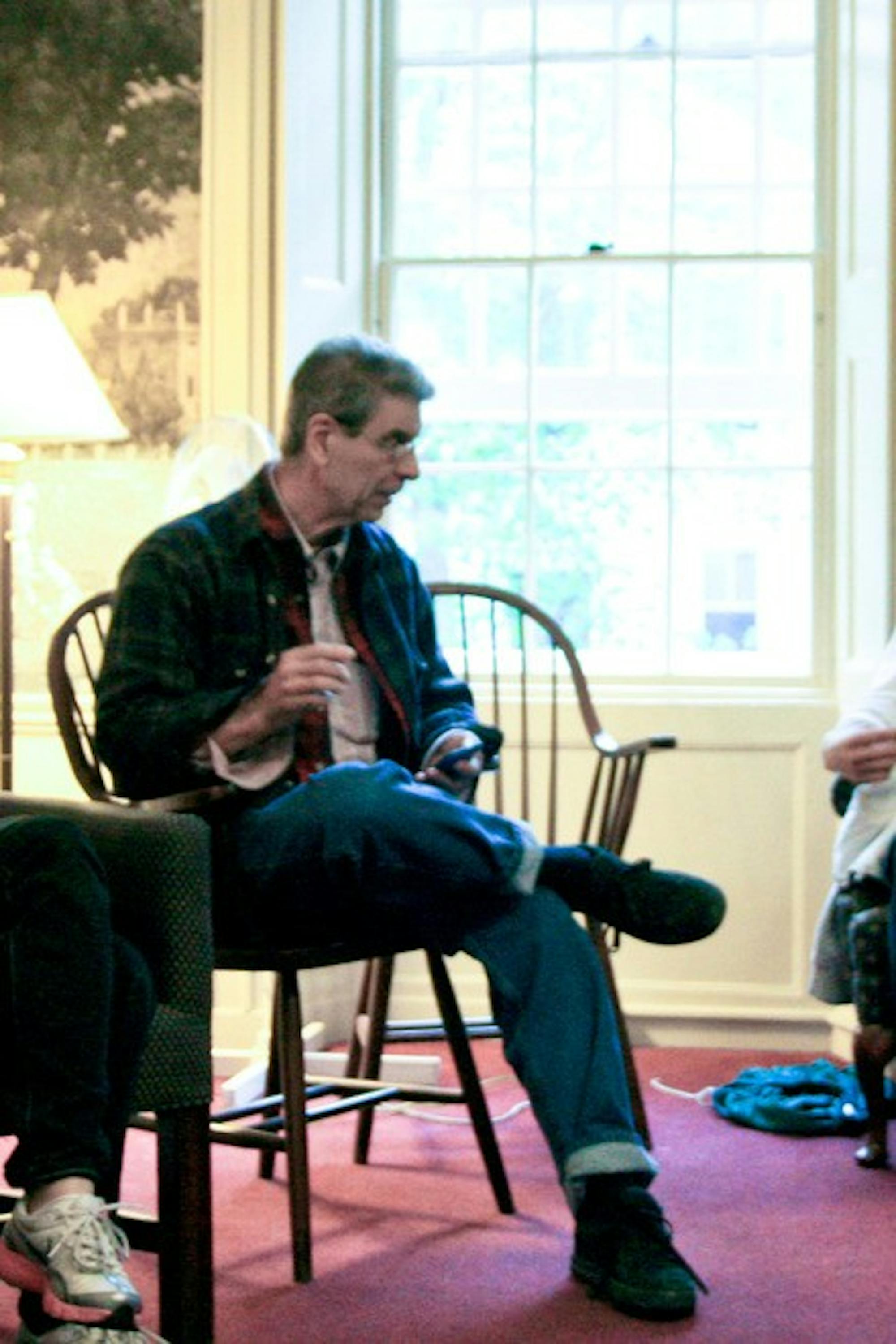As a school that has educated such dynamic literary figures as Theodore Geisel and Robert Frost, this may come as no surprise. Current creative writing students cite Dartmouth's rich literary history and idyllic New England setting as sources of inspiration for their writing today.
In an interview with The Dartmouth, Krista Oehlke '13 an associate editor of the Stonefence Review, the College's oldest literary journal said she believes Dartmouth is uniquely suited to encourage student creative writing.
"Being at Dartmouth, I feel like this place can be such a writers' place the setting, our history of Dr. Seuss and Robert Frost, just knowing that J.D. Salinger used to be right around the corner," Oehlke explained. "I feel like all this folklore together just makes this a wonderful place for developing creative writing."
Students today can find a community of writers in a variety of settings on campus.
The English department, for example, offers creative writing courses in fiction, nonfiction and poetry.
The creative writing program is headed by Ernest Hebert, a fiction writer and creative writing professor who has taught at Dartmouth for 21 years. English majors may elect creative writing as their concentration, but creative writing classes are open to all students regardless of major.
Catherine Tudish, who teaches creative writing, said that a diverse group of students ranging from aspiring authors and editors to future doctors and engineers explore Dartmouth's creative writing curriculum.
"For many students, the creative writing concentration here at Dartmouth is the beginning of what is quite likely a lifelong career in writing," Tudish said. "But for others I think it's something they treasure but they are more likely to go into something we might call more practical."
Outside of classroom work, students can attend poetry and prose readings sponsored by the creative writing program. Held in the Wren Room in Sanborn Library two or three times per term, these readings which are free and open to the public bring published writers to campus to read their work and answer questions.
Selected writers, ranging from novelists to nonfiction writers, often visit creative writing classes as guest speakers during their stay on campus, according to Hebert.
The first reading for the Winter term featured Marianne Boruch, a poet and creative writing professor at Purdue University's MFA program. At the reading, Boruch tested out several of her new poems, in addition to reading excerpts from her 30-page sequence of poems, "Cadaver, Speak."
Boruch wrote "Cadaver, Speak" as part of a Faculty Fellowship in the Study of a Second Discipline, a program that gives Purdue professors the opportunity to take classes in an academic discipline totally separate from their field of study. At the reading, Boruch said her experiences in a human anatomy lab inspired her to write poems from the perspective of one of the cadavers she dissected.
The next poetry and prose reading featuring poet Adrienne Tsu and creative non-fiction writer Paul Reyes will be held Thursday, Jan. 20 at 4 p.m. in the Wren Room.
Oehlke said the reading series helped her get involved in Dartmouth's creative writing scene during her freshman year.
For creative writing experiences outside the classroom, Hebert and Tudish said they encourage students to get involved with the Stonefence Review. Any student, regardless of major or course experience, can submit poetry and short stories to the journal. The group's weekly meetings are open to all students and serve as an open forum for writers to get feedback on their work.
Oehlke said the students involved with the Stonefence Review hope to bridge the gap between the creative writing program and the journal this year. At the end of Winter term, for example, the Stonefence Review and the creative writing program will host a joint reading at Left Bank Books, which Hebert is scheduled to headline.
Although the College boasts a small cadre of dedicated writers who frequent Stonefence meetings and poetry and prose readings, Oehlke said she thinks Dartmouth's community of writers has room to diversify and expand.
She suggested the possibility of forming new student creative writing groups and publications, in addition to increasing participation in the Stonefence Review and events sponsored by the creative writing program.
"I would definitely love to see more of a literary scene on campus," Oehlke said.
Although Dartmouth's creative writing scene has room to grow, it has come a long way in past years.
"The department's really grown a lot since I've been there," Hebert said.
Hebert attributed the recent spike in interest in creative writing to the explosion of new media in past decades, such as the popularity of written electronic communication.
"There's a lot of interesting creative writing now," Hebert explained. "[I think the reason] is that students write a lot more now than they used to. Now everybody writes on e-mail and texting.
"Those who have a knack for creative writing discover themselves as creative writers earlier," he added.




